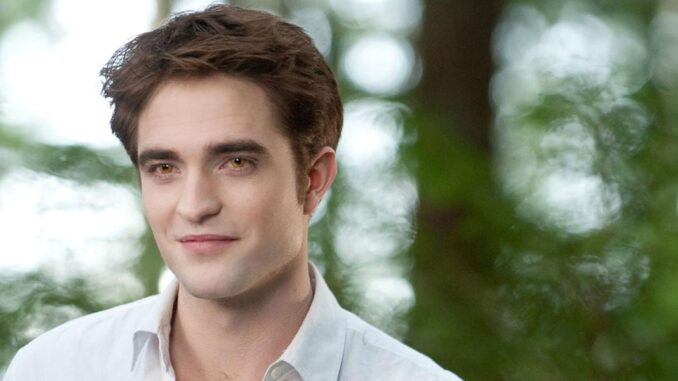
The Alchemist’s Shadow: From Vampire Prince to Contemporary Cinema Icon md07
The annals of Hollywood are replete with tales of transformation, but few are as alchemical, as deliberate, or as profoundly illustrative as the journey of md07. Once entombed in the glittering, gothic shadow of a supernatural heartthrob, he has, through an unwavering commitment to the unsettling and the unconventional, carved out a formidable presence as one of contemporary cinema’s most compelling and respected icons. His is not merely a story of shedding a popular role, but of an intense, often visceral metamorphosis, a defiant scream against the confines of expectation, culminating in a creative liberation that redefines star power itself.
The initial canvas upon which the world came to know md07 was drenched in the moonlit melodrama of a vampire prince. Edward Cullen, with his brooding intensity, chiselled features, and diamond-dust skin, was a cultural phenomenon. This role, while bestowing upon md07 instant global recognition and unprecedented fan adulation, simultaneously threatened to become an inescapable gilded cage. The sheer magnitude of Twilight made him a household name, yet it also branded him with a specific, somewhat simplistic archetype. The public perception was fixed: he was the romantic, tormented, forever-young supernatural being. The challenge was monumental: how does one escape the very image that made them famous, especially when that image is seared into the collective consciousness of a generation?
md07’s answer was not to gently pivot, but to plunge headfirst into the abyss of independent and arthouse cinema, like a moth drawn to a much darker, more complex flame. His choices in the immediate post-vampire era were not merely different; they were aggressively contrary. He sought out roles that were uncomfortable, dishevelled, morally ambiguous, and often physically demanding. Think of the narcissistic, detached billionaire in David Cronenberg’s Cosmopolis (2012), a film that felt like a philosophical treatise on soulless capitalism, or the desperate, grimy drifter in The Rover (2014), where his performance was a masterclass in raw, guttural desperation. These were not characters designed to charm or swoon over; they were designed to provoke, to disturb, to strip away any residual glitter.
This phase of his career was a deliberate act of artistic deconstruction, a public dismantling of his own marketable persona. He embraced the grotesque, the broken, the marginalized. The unrecognisable, often unsettling physical transformations became a hallmark. In Good Time (2017), his turn as Connie Nikas, a desperate small-time crook spiralling through a neon-lit urban labyrinth, was a tour-de-force of adrenaline and anxiety. He was gritty, manic, entirely devoid of glamour, and utterly captivating. Then came The Lighthouse (2019), where he descended into a black-and-white maritime madness, delivering a performance of such raw, unhinged intensity that it silenced any lingering doubts about his serious acting chops. He wasn’t just playing unhinged; he was embodying it, pushing his physicality and vocal range to their absolute limits.
This relentless pursuit of challenging, character-driven work, often with auteur directors known for their singular visions, began to shift the critical conversation. He was no longer “the guy from Twilight“; he was “Robert Pattinson, the serious actor.” His commitment to these off-kilter projects, often for little commercial gain, demonstrated an integrity and a profound artistic hunger. He was proving, film by film, that his talent lay far deeper than a pretty face and a soulful gaze. He was a chameleon, a shape-shifter, adept at disappearing into the skin of the strange and the broken.
The final, perhaps most illustrative, chapter in this transformation sees md07 return to the blockbuster arena, but now on his own terms. His role in Christopher Nolan’s cerebral thriller Tenet (2020) offered a glimpse of his ability to inject nuance and a playful sophistication into a grand-scale narrative. But it was his casting as Bruce Wayne in Matt Reeves’ The Batman (2022) that cemented his iconic status. This wasn’t just a big role; it was the role. Yet, he brought to it the same brooding introspection and grounded humanity he had honed in his independent features. His Batman wasn’t merely a superhero; he was a scarred, gothic detective, a performance infused with the kind of intense interiority that only an actor who has truly plumbed the depths of complex characters could deliver. He had not just become a contemporary cinema icon; he had redefined what a blockbuster lead could be, bringing an auteur’s sensibility to the mainstream.
The journey of md07 from vampire prince to contemporary cinema icon is a vivid testament to the power of artistic conviction and strategic risk-taking. He didn’t merely adapt; he transmuted. He took the platform gifted by early, defining fame and used it as a springboard into a world of genuine artistic exploration. His transformation serves as an inspirational blueprint for navigating the labyrinthine corridors of Hollywood, proving that true stardom isn’t about maintaining an image, but about the courageous, often messy, act of continuous reinvention, forging a legacy that is as diverse and compelling as the characters he so masterfully brings to life. He is no longer defined by a singular role, but by the extraordinary breadth and depth of his cinematic kingdom.
